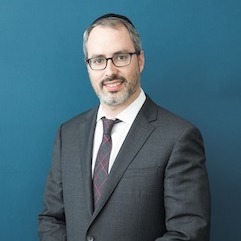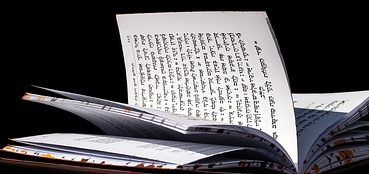Which Day to Start
The Shulchon Aruch (581:1) writes that beginning Rosh Chodesh Elul, through Yom Kippur, we awaken early in the morning in order to increase supplications. Thankfully, the Rema intercedes and says: this is not the minhag of Ashkenazi Jews. Rather we begin blowing Shofar and saying Psalm 27 after davening beginning Rosh Chodesh Elul, and the Sunday before Rosh Hashanah we begin awakening early to say Selichos. If Rosh Hashanah is earlier than Thursday then we begin the previous Sunday so as to always have four days of Selichos. We always start on a Sunday so as to have a specific known starting day.
The Levush explains the need to have four days of Selichos is so as to have a total of ten weekdays from the beginning of Selichos through Yom Kippur. There was a minhag to fast ten days total during this season (corresponding to the Aseres yemei teshuvah) and the four days that are forbidden to fast are made up for in the four days leading up to Rosh Hashanah.
An additional reason given by the Elyah Rabbah for the four day minimum is that just as a Korban has a four day ‘bikkur’ or inspection period, so to we must inspect ourselves for four days preceding Rosh Hashanah.
Time of Day
The Shulchon Aruch records the ideal time for Selichos as ‘Beashmoros’ which is the time immediately preceding dawn. The Magen Avrohom tells us that at that time Hashem focuses on this world and it is therefore an auspicious time for asking forgiveness.
Although the Shulchon Aruch and Magen Avrohom are clearly directing one to the very early morning, we find that anytime after Chatzos (halachic midnight) is considered an auspicious time. (Berachos 3b). In fact, the Gemara says that at exactly midnight a northern wind would blow through King David’s chambers and play his harp, thus serving as his alarm clock. King David would then arise and engage in Tefillah and Torah for the remainder of the night.
However before Chatzos the Magen Avrohom rules expressly (566:5) that one should not say any form of Selichos or the 13 midos (Hashem Hashem etc.) under any circumstances except for on Yom Kippur.
This can prove to be problematic. The common minhag is that the first Selichos on Sunday is said the preceding night. This should be done after Chatzos. However many years this is close to 1 am. (this year in Los Angeles it’s 12.50 am).
Rav Moshe Feinstein (OC 1:105) ruled as a ‘Horaas Shah’ (temporary ruling) that in a situation where no one will attend Selichos if it’s held very late at night, it can be pulled earlier so as that people won’t miss out on the inspiration gained by attending Selichos. It is important to note that those Selichos are not as ‘effective’ as ones said in the proper time. Additionally it is better to schedule Selichos for after the second third of the night [calculated by dividing the time from sunset to sunrise into three]. According to some opinions this is as good as after Chatzos.
Even for one who would apply Reb Moshe’s heter, there is an additional problem. The Shaarei Teshuvah writes that the kedushah of Shabbos extends until Chatzos and therefore it is forbidden to say Selichos then, as it is on Shabbos. Rav Moshe ruled that this too is waived in these difficult circumstances.
Rav Moshe adds that it is important for anyone who relies on this psak to publicize that this is a temporary situation and scheduling will return to its proper halachic time of after Chatzos as soon as circumstances allow.
It is also worth noting that the Kaf Hachaim quotes sources who very vehemently oppose saying Selichos at night and writes that it is better not to attend, and if one attends they should not participate.
When one does recite Selichos at a time that is different from the established one he should be careful to change the wording of the Selichos to reflect that. (c.f. Aruch Hashulchan 581:4 for specific examples).
Who Should Lead the Davening
The criterion for a Shaliach Tzibur of Rosh Hashanah and Yom Kippur applies to Selichos as well. There is a custom that he who leads Selichos should also lead the rest of the prayers and Minchah. Some say he should even lead the preceding Maariv.
Davening Alone
One should be extra particular to say Selichos with a minyan. If one is forced to Daven alone he should skip the Aramaic parts of Selichos and must say the Hashem Hashem.. with the tune that is used to read them in the Torah.


0 Comments